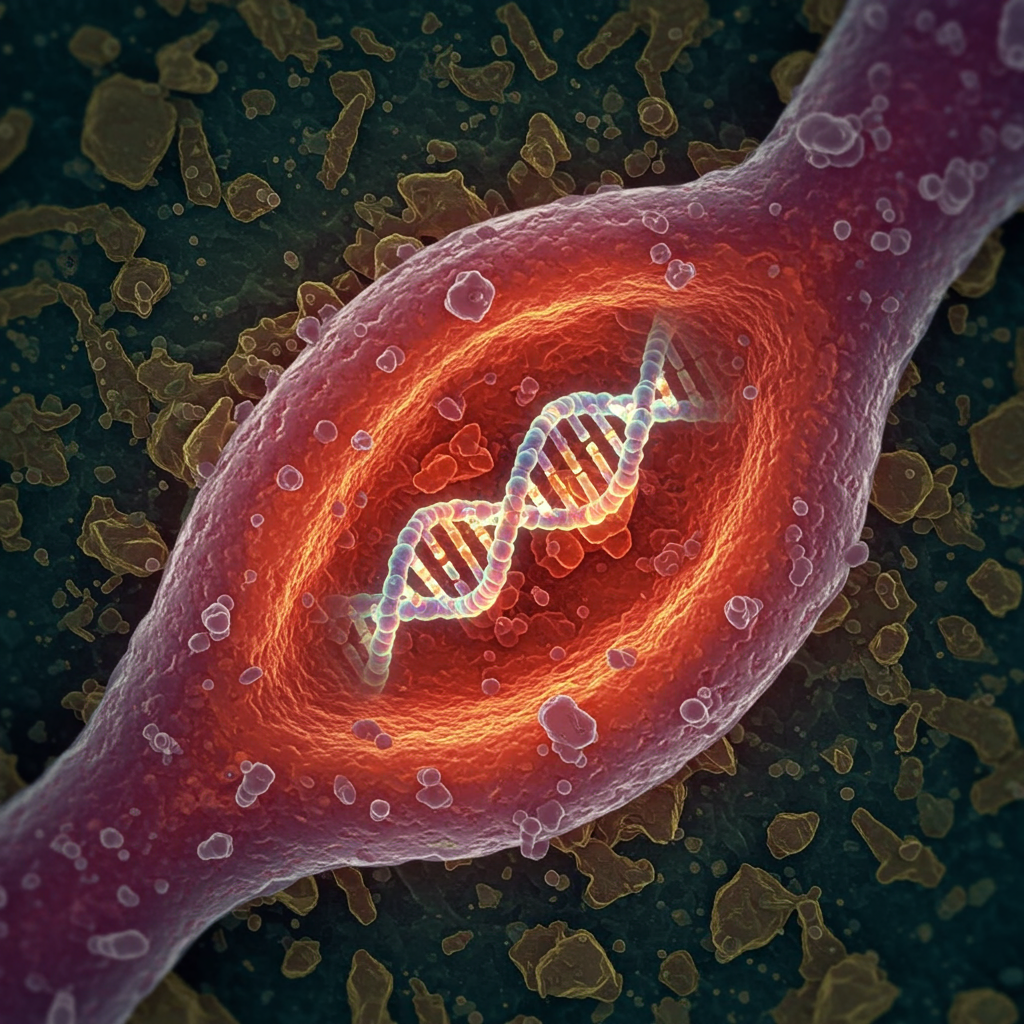For years, the humble egg sat at the center of a heated health debate. Once widely feared for its cholesterol content, often blamed for increasing the risk of heart disease, many experts advised limiting or even eliminating eggs from our diets. But modern nutritional science is painting a vastly different picture. Emerging research and updated guidelines reveal that eggs aren’t just safe; they’re nutritional powerhouses offering surprising benefits well beyond simple protein. So, how many eggs can you really eat per day? The latest findings have compelling answers that challenge outdated assumptions and highlight the genuine value eggs can add to your well-being.
The Great Egg Debate: Cholesterol & Heart Health
The primary reason eggs got a “bad rap,” as cardiovascular surgeon Dr. Jeremy London puts it, was the cholesterol found in their yolks. This led organizations like the American Heart Association (AHA) to historically view them negatively, contributing to the widespread belief that eating eggs would directly raise blood cholesterol levels and increase heart disease risk.
However, scientific understanding has significantly evolved, particularly around 2015, as Dr. London notes. We now know the relationship between the cholesterol you eat (dietary cholesterol) and the cholesterol levels in your blood is far more complex than previously thought. For most healthy individuals, consuming dietary cholesterol has a less significant impact on blood cholesterol than saturated and trans fats do.
Leading experts like Dr. Corinne Chicheportiche-Ayache confirm that eating up to two eggs per day typically does not significantly raise cholesterol levels in healthy people. The AHA’s current guidance reflects this softened stance, suggesting that healthy adults can generally include one whole egg per day as part of a heart-healthy diet. For healthy older adults with normal cholesterol levels, consuming up to two eggs daily is considered acceptable. Dr. London emphasizes that focusing on the entire dietary pattern is crucial rather than singling out one food.
Debunking the Yolk Myth
Adding to the positive shift, the egg yolk, once demonized, is now celebrated. While the white provides excellent lean protein, the yolk contains the majority of the egg’s vitamins, minerals, antioxidants, and healthy fats. Dr. London points out that the “majority of the dietary benefit actually comes from the yolk.” Avoiding the yolk means missing out on crucial nutrients.
Beyond Protein: Eggs’ Surprising Benefits for Bones
While protein is a well-known benefit of eggs, recent research highlights an exciting advantage: their potential to significantly support bone health. A notable study published in the journal Food & Function tracked nearly 19,000 adults, examining the link between egg consumption and various health markers.
The findings were compelling. Participants who consumed approximately 1.5 eggs per day displayed significantly stronger bones compared to those who avoided eggs entirely. Specifically, regular egg eaters showed a remarkable 72% higher bone density in the femur (thigh bone) and an even more impressive 83% higher bone density in the spine.
These results are particularly significant for adults concerned about osteoporosis or maintaining skeletal integrity as they age. The study strongly suggests that including eggs in your diet could play a valuable role in promoting bone strength.
The Nutrients Powering Bone Health
Eggs are packed with essential nutrients vital for building and maintaining strong bones. Each egg provides a valuable source of:
Calcium, Magnesium, and Phosphorus: These minerals are fundamental building blocks of bone tissue.
Vitamin D: Crucial for helping your body absorb calcium effectively, making it available for bone mineralization.
Zinc: Plays a role in bone tissue repair and supports healthy immune function, which indirectly benefits overall tissue health.
Vitamin K1: A less recognized but important nutrient that helps activate osteocalcin, a protein essential for integrating calcium into bone structure.
Combined with the high-quality protein eggs provide, which is needed for bone metabolism and muscle maintenance, these nutrients offer a comprehensive package for skeletal support. This rich nutritional profile helps explain the positive bone density findings in the recent research.
Fueling Your Brain: The Cognitive Connection
The benefits of eggs extend to brain health, according to emerging research. A 2024 study published in MDPI analyzed data from 890 participants, including over 500 women, to explore the relationship between egg intake and cognitive function, including memory and overall brain performance.
The results suggested a positive link between eating eggs and brain health, though with interesting gender differences. Women who consumed more eggs showed a reduced likelihood of experiencing age-related memory decline. Men who regularly ate eggs tended to perform better on long-term cognitive tests.
These cognitive advantages are largely attributed to key nutrients abundant in eggs:
Choline: This essential nutrient is critical for nervous system function and maintaining efficient communication between brain cells via neurotransmitters.
Carotenoids: These antioxidants help protect brain cells from damage caused by oxidative stress and are linked to enhanced cognitive abilities.
While the precise reasons for the gender-specific results require further investigation, the study adds to the growing body of evidence that incorporating eggs into your diet may support cognitive function throughout life.
How Many Eggs Are Optimal? Current Recommendations
Based on the latest scientific understanding, including the re-evaluation of cholesterol concerns and the discovery of bone and brain benefits, most nutrition experts agree that moderate egg consumption is safe and beneficial for healthy adults.
A common recommendation is to consume one to two eggs per day as part of a balanced and varied diet. This amount typically fits comfortably within daily nutritional guidelines and allows you to reap the numerous health benefits without negatively impacting cholesterol levels for the vast majority of people. Eggs are incredibly versatile and easy to incorporate into meals. Enjoy them scrambled, poached, boiled, or in dishes like frittatas. Pairing eggs with fiber-rich foods like vegetables, legumes, and whole grains can further enhance the overall nutritional value of your meal.
Ultimately, the decision is personal, and Dr. London advises listening to your body and considering your individual biomarkers. However, for most healthy individuals, including one or two eggs daily is a simple, nutrient-dense way to support heart health, build stronger bones, potentially boost brain function, and contribute to overall well-being.
Frequently Asked Questions
What specific nutrients in eggs contribute to bone strength?
Eggs contain several key nutrients crucial for strong bones, including calcium, magnesium, and phosphorus, which form bone structure. They also provide Vitamin D, essential for calcium absorption, zinc for bone repair, and Vitamin K1, which activates a protein vital for bone mineralization. High-quality protein in eggs also supports bone metabolism.
According to experts, how many eggs are generally safe to eat daily for most healthy adults?
Based on current research and expert consensus, including insights from cardiovascular surgeons and nutritionists mentioned in the article, consuming one to two eggs per day is generally considered safe and beneficial for most healthy adults. This amount typically does not negatively affect blood cholesterol levels when part of a balanced diet.
Are there resources for checking official guidance on including eggs in a heart-healthy diet?
Yes, organizations like the American Heart Association (AHA) provide guidance. As noted by cardiovascular surgeon Dr. Jeremy London, the AHA’s current stance has softened, suggesting that one whole egg per day can be included in a heart-healthy diet for healthy adults, with up to two acceptable for healthy older adults with normal cholesterol. Always consult official health organization websites for the latest recommendations.
The narrative around eggs has truly come full circle. From being unfairly labeled as a dietary villain, eggs are now recognized as a nutrient-dense superfood. The latest research not only debunks outdated cholesterol fears but also highlights exciting benefits for bone density, cognitive function, and overall nutritional intake. By understanding the science and embracing moderate consumption, you can confidently include eggs in your daily routine, leveraging their unique blend of protein, vitamins, and minerals to support your long-term health goals.




